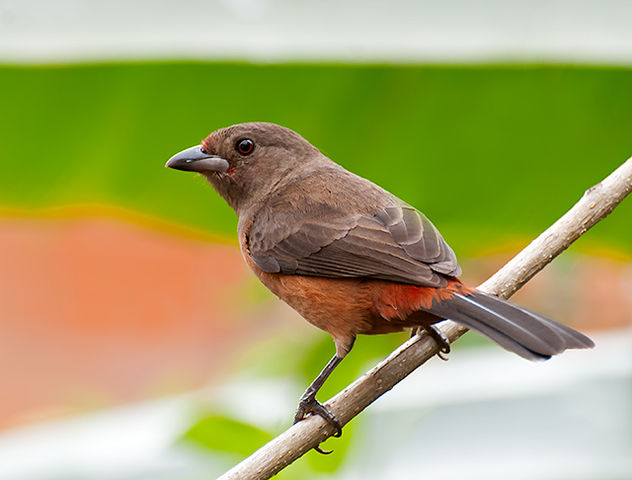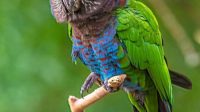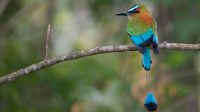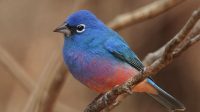A visually striking bird, with his bright crimson body, he shines like a neon light! Even more so against a background of black wings and tail.
Meet the Brazilian Tanager
Photo Courtesy of Dario Sanches – Uploaded by Snowmanradio / CC BY-SA 2.0
The Brazilian Tanager (Ramphocelus bresilius), is a species of bird in the Thraupidae family. A sexually dimorphic bird measuring around 7.1 inches in length weighing in at 0.99 – 1.25 oz. These birds have a heavy bill, with males wearing bright red – crimson plumage with black wings and a black tail.

Photo Courtesy of Dario Sanches – Uploaded by Snowmanradio / CC BY-SA 2.0
His upper bill is black and the lower bill silver in color.
Females lack the silver bill the males wear and are mostly brown with a cinnamon belly and rump.

Photo Courtesy of Egon Fink / CC BY 2.0
This species is native to the east coast of Brazil from Paraíba all the way down to Santa Catarina.

Photo (cropped) Courtesy of Egon Fink / CC BY 2.0
Brazilian tanager likes to live near forest edges, cultivated land, and chicken coops. They also like to be near lakes, rivers, streams, and ponds.

Photo Courtesy of Egon Fink / CC BY 2.0
These birds are mainly a frugivorous species, favoring Cecropia, and Acnisuts arborescens, but also taking papaya, banana, guava, as well as other tropical fruit. They have also been known to dine on insects and worms.

Photo (cropped) Courtesy of Egon Fink / CC BY 2.0
Brazilian tanager breed from October through to March, building a cup-shaped nest using plant fibers from agaves, coconuts, palms, and grassroots. 2-3 eggs are laid within and incubated by the female for around 13 days. After hatching the chicks become fledged after 14-17 days.
Photo Courtesy of Steve Wilson / CC BY 2.0
Despite some trapping for the caged bird trade, the Brazilian tanager population to be stable as the bird is able to adapt to manmade changes in its environment.








